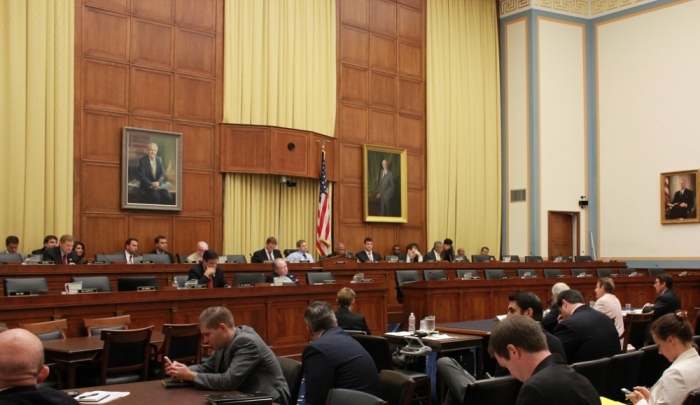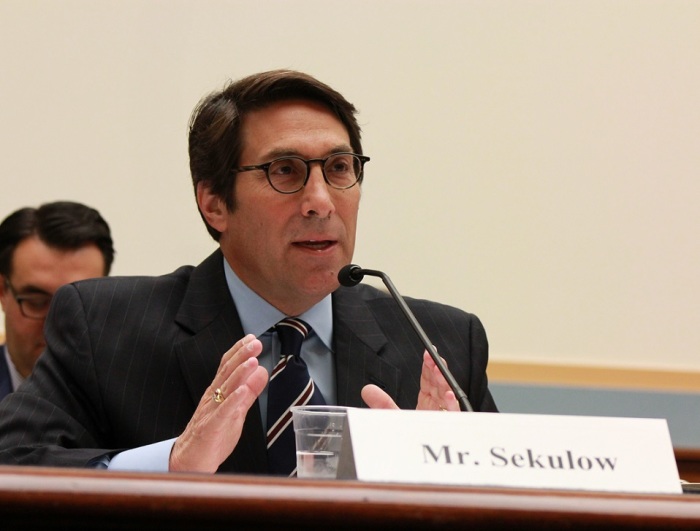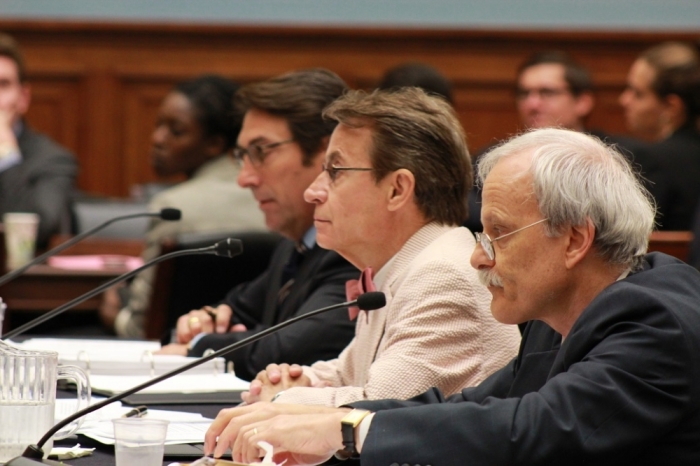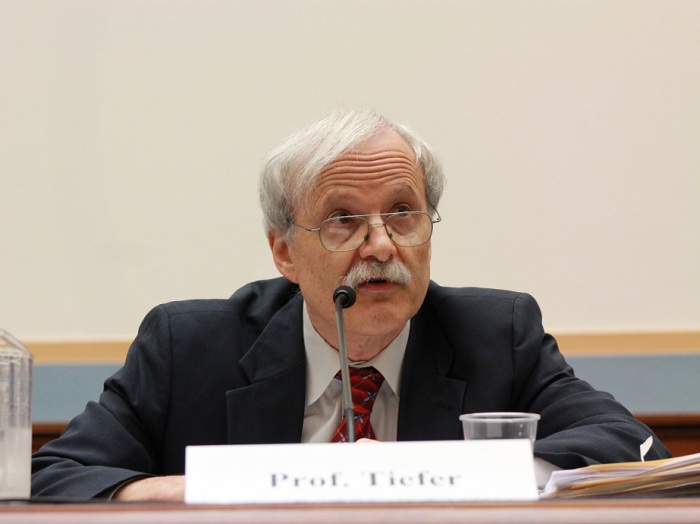Should a Special Counsel Investigate the IRS Targeting of Conservatives?

WASHINGTON – At a Wednesday House committee hearing, experts debated whether or not a special counsel should be appointed to investigate claims that the Internal Revenue Service was unlawfully targeting conservative groups.
The House of Representatives Committee on the Judiciary heard testimony Wednesday from three experts on the matter, with one calling the current efforts by the Justice Department a "faux investigation."
Testimony was given by Jay Sekulow of the American Center for Law and Justice, Professor Ronald Rotunda of Chapman University, and Professor Charles Tiefer of the University of Baltimore School of Law.
In his remarks, Sekulow argued that Attorney General Eric Holder needs to appoint a special counsel to investigate claims that the IRS has targeted conservative groups, arguing that the Department has a conflict of interest.

"This is a faux investigation. This isn't real," stated Sekulow to the Committee at the Rayburn House Office Building regarding the current investigation of the IRS.
In May, the House passed Resolution 565, which called upon Holder to appoint a special counsel in lieu of allegations of conflict of interest.
Sekulow told The Christian Post that the purpose of the hearing and his testimony was to revisit the matter "to underscore" the need for an outside person to investigate the IRS.
"The resolution, which set forth the request, I think the idea here was to now present additional evidence from the people that were actually –in my case—actually litigating the cases," said Sekulow.
"That there is a need for a special counsel. We're never going to get to the bottom of this in civil litigation. That it's going to take an outside counsel."
Regarding who the special counsel should be, Sekulow responded that if a special counsel is appointed he or she will likely have to start from the beginning with the evidence available.
"I think you want someone that's going to get in there and start this process … I hate to say this, but I think you have to start it over," said Sekulow.
"Start looking at all the evidence that is now coming out because it's very, very significant what is changed since even the beginning of the investigation."
Over the past few years, several conservative organizations have filed complaints against the IRS over allegedly being targeted by the government organization due to their political views.
Last year, the scandal made headlines, revealing that right-leaning political organizations, along with some progressive groups, were harassed by the IRS in various ways.
Holder promised an investigation and the House passed a resolution calling for a special counsel, arguing that the ties between the administration and the alleged perpetrators of the IRS targeting are too close.
Representative Bob Goodlatte of Virginia, chairman of the House Committee on the Judiciary, argued in his testimony that the current investigation by the Justice Department has been too slow.
"The Administration's delays, denials, and continued efforts to obfuscate the truth have further eroded [trust in the government]," stated Goodlatte.
"As I've said repeatedly, the American people deserve to know who ordered the targeting, when the targeting was ordered, and why."

During the nearly three-hour-long Committee meeting, congressmen and the experts went back and forth on the question of conflict of interest and the need for special counsel.
Ranking member Representative John Conyers, Jr. of Michigan argued that the hearing was unnecessary and that the Committee should focus on other matters including crafting comprehensive immigration reform or curbing gun violence.
Conyers's view was echoed by Committee member Rep. Henry Johnson Jr. of Georgia, who noted that several more hearings have been held on the IRS controversy than the aforementioned issues.
In his testimony before the Committee, Professor Tiefer stressed that the attorney general and not the House determines whether or not a special counsel can be appointed.
"…the House's quest for a special counsel is unrealistic," wrote Tiefer in his written testimony, adding that the Committee "cannot replace the Attorney General's judgment, about special counsels, with its own."

In an interview with CP, Tiefer said that he did not believe the Committee meeting he gave testimony to on Wednesday will be that influential in the IRS controversy.
"They've had a lot of hearings so far and the House has already passed a resolution on the subject, but … the odds are against it being that influential," said Tiefer.
Tiefer also told CP that while some took issue with the hearing taking place, the question of whether or not to have a special counsel "is an important one."
"Although there was a certain amount of sharp political comment back and forth among members about whether the hearing was purposeful or not, I certainly thought that a lot of involved serious discussion," said Tiefer.
The hearing was held on the last full day of work for the One Hundred Thirteenth Congress before its five-week August recess commences.




























